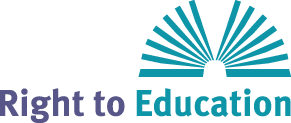This publication begins with the need to dismantle prevalent misconceptions because they hinder the advancement of education as a human right. Those conceptual obstacles which are particularly widespread are tackled, and their dark sides highlighted. This publication strives to provide food-for-thought because there are reasons for denying that education is a human right and these have to be brought into the open and countered effectively.
This is the second publication in a series devoted to elucidating key dimensions of the right to education. It addresses the cardinal requirement of the right to education – ensuring free and compulsory education for all.
This article makes some general observations on the concept of a core content of economic, social and cultural rights, and illustrate these observations by identifying some elements of the core content of the right to education using the 4 As framework (availability, accessibility, acceptability and adaptability).
This article identifies different types of State's failures to realise the right to education, which are violations of the right to education.
This is the third publication in a series devoted to elucidating key dimensions of the right to education. This publication summarises governmental human rights obligations in education, structured into a simple 4-As scheme – making education available, accessible, acceptable and adaptable.
Co-operation between UNESCO’s Committee on Conventions and Recommendations (CR) and The United Nations Committee on Economic, Social and Cultural Rights (CESCR) on the objectives for monitoring and promoting the Right to Education.
"In our globalized world, education and the fight against discrimination remains a major issue. Thus discriminatory practices still exist today despite the fact that discrimination has no justification in international law.
Faced with this challenge, not only is education required to play an important role in the fight against discrimination, but access to all levels of education must be ensured systematically and without discrimination. This is one of the major issues involved in the right to education."
The Expert Consultation on the Operational Definition of Basic Education, organised from 17 - 18 December 2007 at UNESCO, brought together eminent experts from different regions and further discussed a preliminary draft of operational definition that was initially proposed during the Experts’ Workshop on “Challenges and Perspectives of Law and Education” organised in Sao Paulo in December 2006.
This Consultation was part of UNESCO’s efforts to address the request by the Joint Expert Group UNESCO (CR)/ECOSOC (CESCR) on the Monitoring of the Right to Education and by experts during the “International Conference on the Right to Basic Education as a Fundamental Human Right and the Legal Framework for its Financing” (Jakarta, 2005), to initiate a reflection and dialogue process for the elaboration of an operational definition of basic education and to elaborate a definition that would be universally accepted and recognized.
In preparation for this meeting, UNESCO undertook a thorough analysis of recent policy and legal texts which illustrated the lack of linguistic consistency in the terms used to describe the initial stages of formal education (basic, elementary, primary, fundamental, secondary, basic learning needs, etc.). A Thematic Framework, prepared by the Secretariat of UNESCO presented the policy and international normative framework as well as the right to basic education in constitutions and national legislation.
It has recently been suggested that the age of human rights is over. The West, itself often not respecting human rights, is said to have abused the concept as a tool to retain control over the developing world. Human rights have remained a foreign construct in Africa, the Near East, and Asia. They have "underperformed," and the level of privation in many parts of the world is more intense than ever. This Article acknowledges elements of truth in these observations, but argues that the battle for human rights is not lost. Using the right to education in Africa as an example, three arguments will be presented to explain how human rights can regain their moral cogency and actually help change a world of misery for the better. First, human rights need to be "domesticized," made "home-grown" achievements with which local populations can identify. Regional human rights institutions need to give specificity to universal norms. These "locally-owned" norms must then be effectively enforced. Second, pure "development goal" approaches to reducing global poverty need to be debunked. Instead, a human rights approach needs to identify clear duty-bearers, including notably the World Bank, who, when they have failed to comply with specified duties, should be considered "human rights violators" and held accountable accordingly. Third, and perhaps most importantly, human rights must be recognized to give rise to extraterritorial state obligations. These are obligations of states, in appropriate circumstances, to respect, protect, and fulfill the human rights of those beyond their own territory. The extraterritorial human rights obligations of states must structure bilateral development assistance and cooperation, the lending operations of the International Monetary Fund and the World Bank, and free trade within and beyond the World Trade Organization (here, meaning the General Agreement on Trade in Services and the Agreement on Trade-Related Aspects of Intellectual Property Rights).
